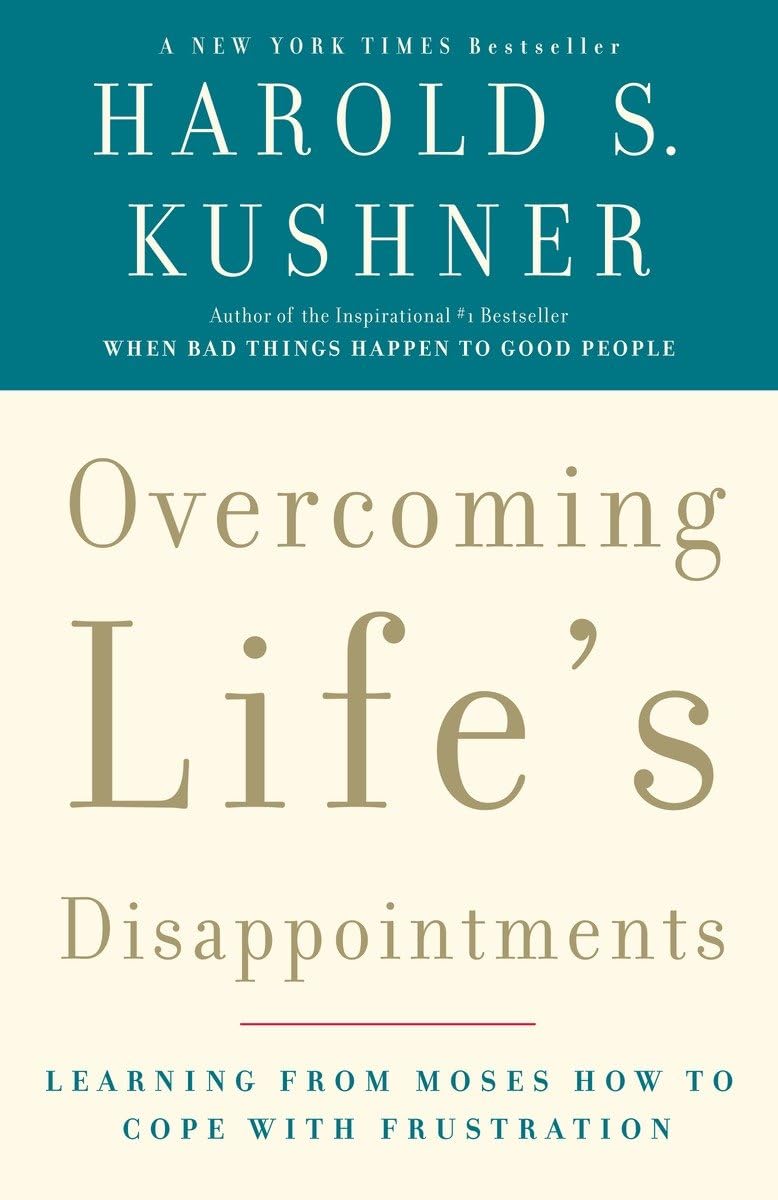Dealing with Life’s Disappointments

Rabbi Harold Kushner once wrote a powerful book titled Overcoming Life’s Disappointments. The book is based on the story of Moses, a pivotal figure in the Hebrew Bible. We can learn a great deal from Moses’ life and the many disappointments he had to face when leading the Israelites through the wilderness. He persevered and pressed forward despite ongoing setbacks, inconveniences, and frustrations. Kushner asks, “What if we could be like Moses in our ability to overcome disappointments, frustrations, and the denial of our dreams? What if we could learn from Moses how to respond to disappointment with faith in ourselves and in our future and to respond to heartbreak with wisdom instead of bitterness and depression?”
Many of the disappointments that we face in life seem to fall into three basic categories. The first is tied to relationships. We often learn at an early age that people will let us down. We get our hearts broken. We pour out our feelings for somebody only to find out they don’t feel the same way. We want to become friends with somebody but discover they don’t have time for us. Marriages don’t work out, and people who never considered divorce go through that very painful, life-altering process. Some who go into marriage thinking everything will be perfect become disillusioned when they discover that no marriage is perfect. Relationships take work, sacrifice, and effort at every stage of the game. Children disappoint their parents with the decisions they make. Then at later stages of life, children get disappointed when they discover the flaws and shortcomings of their own parents. Political candidates let us down. Friends seem absent when we need them most.
Second, disappointment is often tied to money and success. Some feel they should be further along their career path than they are and that they deserve to make more money than they do. Some are unfulfilled in their jobs going through the motions every day to make a living while looking around and seeing that everybody else seems to have a better life. Social media has led us into a dangerous age of constant comparison that often leads to envy and resentment.
The third area of disappointment revolves around our health. We see pictures of ourselves when we were younger and thinner and wonder, “What happened?” It’s hard to keep weight off. Our bodies start to ache and give out on us, and we get frustrated. We can’t do the things we used to do. Then, we face medical challenges – some that we can control, but many that we can’t.
The human condition involves the existential reality of disappointment. It is inevitable. We all experience it. Some will experience more disappointment than others but we all experience it on a regular basis. Managing expectations is very important. The question is “How do we deal with it and how do we overcome it?” Gratitude is essential. Mindset always matters. So do resilience and forgiveness.
At the end of the book, Rabbi Kushner says, “If you have been brave enough to love, and sometimes you won and sometimes you lost; if you have cared enough to try, and sometimes it worked and sometimes it didn’t; if you have been bold enough to dream with some that come true and some that don’t – then you, like Moses, can realize how full your life has been and how richly you are blessed.”
Life is not judged by the number of times we get knocked down, but by how many times we get back up and keep going. If you look around, you will see people everywhere who need encouragement and love.
Recommended Posts

Easter, Baptisms, & Commitment Sunday
April 23, 2025

Easter Brings New Life!
April 16, 2025

Generous Hearts
April 11, 2025

